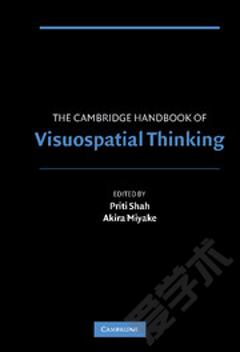The Cambridge Handbook of Visuospatial Thinking
The ability to navigate across town, comprehend an animated display of the functioning of the human heart, view complex multivariate data on a company's website, or to read an architectural blueprint and form a three-dimensional mental picture of a house are all tasks involving visuospatial thinking. The field of visuospatial thinking is a relatively diverse interdisciplinary research enterprise. An understanding of visuospatial thinking, and in particular, how people represent and process visual and spatial information, is relevant not only to cognitive psychology but also education, geography, architecture, medicine, design computer science/artificial intelligence, semiotics and animal cognition. The goal of this book, first published in 2005, is to present a broad overview of research on visuospatial thinking that can be used by researchers as well as students interested in this topic in both basic research and applied/naturalistic contexts.
{{comment.content}}








 京公网安备 11010802027623号
京公网安备 11010802027623号